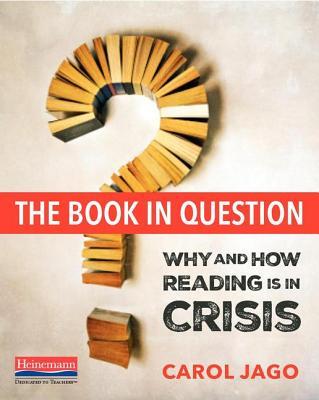Why Are More Malaysians Only Reading Headlines? — A Reading Crisis We Can No Longer Ignore
In today’s age of information overload, Malaysians are bombarded with hundreds of news updates, short videos, and social media posts every single day. As a result, our reading habits have quietly but drastically changed — more and more people read only the headlines, skip the content, yet still feel confident enough to judge, share, or even argue passionately based on a single line of text.
This phenomenon isn’t unique to Malaysia, but it is especially pronounced here. And behind it lies a serious reading crisis that is getting worse.
1. The more dramatic the headline, the more clicks it gets — but content quality keeps dropping
To attract attention, media outlets, bloggers, and influencers have turned to “headline-centric” content — and often, outright clickbait:
-
The scarier the headline, the more clicks.
-
The more it stirs emotions, the faster it spreads in WhatsApp groups.
We see it every day:
-
A headline makes it sound like the country is collapsing, but the article only exaggerates some data.
-
A title says “Shocking! Government announces major decision,” but the content is just a draft proposal.
-
A headline says “Expert warns of danger,” but the article is only about general advice.
The headline has become a weapon for grabbing attention, while the actual content matters less and less.
2. Fast-paced living makes Malaysians too impatient for anything longer than a headline
People often say:
“No time lah, headline enough.”
But the real issue isn’t time.
We spend half an hour scrolling TikTok, but think a 5-minute article is “too long.”
We read hundreds of Facebook comments, yet don’t want to read a full analysis.
It’s not a time problem — it’s that our attention span has been trained to shrink.
And headlines perfectly satisfy this craving for instant gratification.
3. Headlines trigger emotions, and emotions shape opinions — deepening Malaysia’s social divisions
The danger of reading only headlines isn’t just “missing information.” The real danger is this:
Headlines are designed to trigger emotions — and emotions shape our judgement.
So we often end up with:
-
Malays enraged by headlines implying “non-Bumis get special treatment”
-
Chinese upset by titles suggesting “government policies favour only one race”
-
Indians disappointed when titles highlight “neglect of their community”
-
Other groups alarmed by headlines hinting at “religious tension rising again”
But the full story is often far more nuanced — and sometimes the headline deliberately frames the reader toward a certain viewpoint.
The more people rely on headlines alone, the easier it is for society to fall into emotional debates, misunderstandings, and deeper division.
4. Headlines attract attention, but they cannot build critical thinking
A headline can catch your eye, but it cannot help you understand an issue.
In a society where increasing numbers of people rely solely on headlines, we will see:
-
Greater vulnerability to misinformation
-
More emotional, less rational public debate
-
Shallower understanding of policies and national issues
-
Increased polarization driven by misunderstanding
This is why Malaysia’s online discussions feel increasingly tense and emotional — everyone is reacting to headlines, while very few read the actual content.
5. We cannot blame only the media — the audience must also reflect
Media needs clicks, so they write explosive headlines.
Readers want quick info, so they skip everything except the title.
This becomes a vicious cycle.
If readers don’t read content, media will write even more dramatic headlines.
And the more dramatic the headlines, the lazier readers become about reading the content.
Conclusion: Malaysia doesn’t just need better headlines — it needs citizens willing to read
A headline is only the key that opens the door.
True understanding lies behind the door.
If we continue reading only headlines, we will continue to be manipulated, provoked, and misled.
Becoming a reader — even just a little bit more patient — is the first step toward a more informed, more thoughtful Malaysia.
为什么越来越多马来西亚人只看标题?——一场被忽略的阅读危机
在这个资讯爆炸的时代,马来西亚人每天被数以百计的新闻、短视频和社交媒体贴文轰炸。结果,我们的阅读习惯也悄悄改变了——越来越多人只看标题,不读内容,而且还愿意根据一个标题来做判断、分享文章,甚至参与激烈争辩。
这种现象不是马来西亚独有,但在马来西亚却特别明显,这背后反映的其实是一场正在恶化的阅读危机。
1. 标题越夸张,点击越多,但内容质量却越来越差
为了吸引读者,媒体、博主、KOL 都开始“标题化”,甚至“标题党化”:
-
标题越恐吓,越多人点击。
-
越煽动情绪,越容易在 WhatsApp 群疯传。
于是我们看到许多文章:
-
读了标题以为国家要崩溃,结果内容不过是数据被夸大
-
标题写“震惊!政府宣布重大决定”,点进去却发现只是讨论草案
-
标题写“专家警告危险”,内容却只是一般建议
标题成了流量武器,而内容却越来越不重要。
2. 快节奏生活,让马来西亚人没有耐心看“长文”
很多人说一句话说明一切:
“时间不够,看标题就好。”
但其实时间并不是真正的问题。
我们每天花几十分钟刷 TikTok,却觉得五分钟的文章太长;
我们能在 Facebook 看几百个留言,却不愿阅读一个完整分析。
这不是没时间,而是注意力被训练得越来越短。标题刚好满足这种快速满足的需求。
3. 标题影响情绪,情绪决定判断——造成国家更深的社会分裂
只看标题的坏处不是“资讯不完整”,而是:
标题往往带情绪,而情绪会影响判断。
结果:
-
马来人看到“非土著受优待”的标题生气
-
华人看到“政府政策只帮特定种族”的标题愤怒
-
印度人看到“族群被忽略”的标题失望
-
其他族群看到“宗教问题再度爆发”的标题恐慌
而事实常常比标题复杂得多,甚至有些标题故意带偏读者立场。
标题阅读,让马来西亚社会更容易陷入情绪化争议,误解更深,分裂更快。
4. 标题能吸引注意,但不能建立思考
标题可以抓住眼球,但不能培养判断力。
一个社会如果越来越多“只看标题的人”,就会出现:
-
更容易被假新闻操控
-
更容易被分化情绪利用
-
对政策理解越来越肤浅
-
公共讨论充满误解与偏见
这就是为什么马来西亚网络环境愈来愈激烈、愈来愈情绪化——因为大家都在根据标题讨论,却没有人真正理解内容。
5. 不能只怪媒体,也要反思自己
媒体需要流量,所以写“爆点标题”。
但读者想要快速资讯,所以只看标题。
这是一场互相影响、互相逼迫的恶性循环。
如果读者不愿意看内容,媒体就会写更夸张的标题;
而媒体的标题越夸张,读者就更懒得看内容。
结语:马来西亚需要的不只是好标题,而是愿意阅读的公民
标题是打开大门的钥匙,但真正的知识在门里面。
如果我们继续只看标题、不看内容,我们就会继续被操控,被煽动,被误导。
做一个愿意阅读的马来西亚人,是改变国家的第一步。
Related articles:
1. The West’s Double Standards and Hypocrisy: A Reality Exposed from Ukraine to Gaza
2. The Legacy of Mahathir’s Policies: The Cost of National Unity
3. War Can Never Bring True Peace
4. What Is the Meaning of Life?
5. The Dangers of PAS’s Religious Political Agenda: Malaysia at a Crossroads

